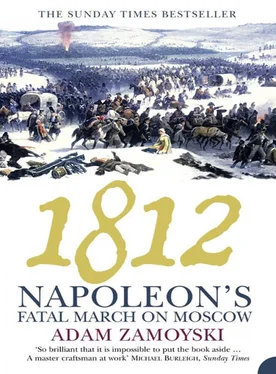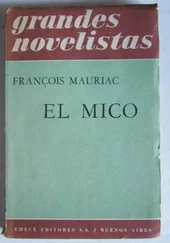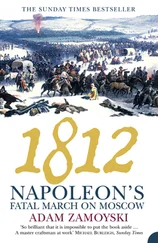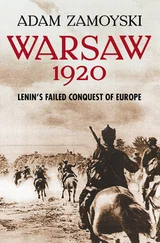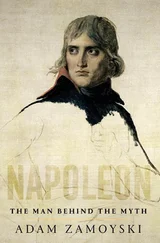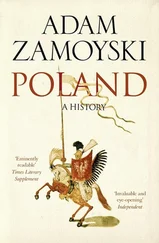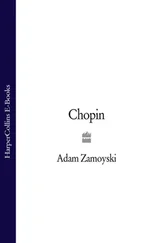There are several methods of transliterating Russian words and names, none of which is, to my mind, completely satisfactory. This is mainly because they attempt consistency where none is possible, and also because every new scheme necessarily outlaws words based on previous methods that have already become familiar. I have therefore followed my own instinct and what I believe to be common sense. I realise that specialists may find this irritating.
I have transliterated Russian names as they are pronounced, preferring Yermolov to Ermolov, or as they have been known in the West for decades, sticking to Tolstoy rather than Tol’stoi, Galitzine rather than Golitsuin. I have stuck to the -sky ending for Russian names as opposed to the -skii, for the same reasons. But I have observed the universally accepted new spelling in the bibliography, since that is how the names appear in (most) library catalogues. In the cases of non-Russians serving in the Russian army, I use the original spelling, as I see no reason to turn a Wittgenstein into Vitgenshtain, a Czaplic into a Chaplits, or a Clausewitz into a Klausevits, except in the cases of Baggovut (Swedish Baggehuffwudt) and Miloradovich (Serbian Miloradovic), for purely pragmatic reasons.
Perhaps the most difficult question is that of place names. The action of the campaign unfolds over territories which had recently passed from one sovereignty to another, and sometimes back again, and which are now in entirely new countries. I have used German names for what was then East Prussia. I have used Russian names for Russia beyond Smolensk (except for St Petersburg and Moscow). I have used Polish forms and spellings for places in the Grand Duchy of Warsaw, and transliterated Polish names on the territory which had been Polish in the decades before 1812. I have done this because the French used these forms in their accounts (albeit with curious spellings). The Russian forms of these names hardly differ from the Polish, while the present-day Lithuanian or Belarussian ones would be confusing (I have enclosed a brief glossary of these names with their present-day forms, for purposes of identification). I have made an exception of the capital of Lithuania: the French mostly spelt it Wilna, the Russians called it Vilna, and the Polish Wilno would seem out of place, particularly if transliterated into Vilno – so I have opted for Vilna. For similar reasons, I have preferred the Russian Glubokoie to the Polish Głebokie, which would be transliterated as Gwembokie.
All dates are given in the new style, according to the Gregorian calendar.
I should like to thank Professors Isabel de Madariaga, Janet Hartley, Lindsey Hughes, Dominic Lieven and Alexander Martin for their advice and assistance. My thanks must also go to Mirja Kraemer and Andrea Ostermeier for reading a number of German texts for me, and to Galina Babkova for the speed and efficiency with which she ferreted out, copied and despatched to me whatever I required from libraries in Russia. I am grateful to Dr Dobrosława Platt, Laurence Kelly, Artemis Beevor and Jean de Fouquières for their help in tracking down illustrations. Shervie Price was, once again, a long-suffering reader and an invaluable critic of my typescript, and Robert Lacey was an exceptionally meticulous and sensitive editor. Trevor Mason deserves a medal for his patience with me over the maps and the diagram.
I should also like to thank Ambassador Stefan Meller for his assistance during my trip to the theatre of operations, and Mikolaj Radziwill for being such a good driver on the roads of Russia, Lithuania and Belarus, and companion in Vilnius, Orša and Smolensk, on the battlefield of Borodino and the banks of the Berezina.
Above all I want to thank my wife Emma, for everything.
As the first cannon shot thundered out from the guns drawn up before the Invalides on the morning of 20 March 1811, an extraordinary silence fell over Paris. Wagons and carriages came to a standstill, pedestrians halted, people appeared at their windows, schoolboys looked up from their books. Everyone began to count as the discharges succeeded each other at a measured pace. In the stables of the École Militaire, the cavalry of the Guard were grooming their horses. ‘Suddenly, the sound of a gun from the Invalides stopped every arm, suspended every movement; brushes and curry-combs hung in the air,’ according to one young Chasseur . ‘In the midst of this multitude of men and horses, you could have heard a mouse stir.’ 1
As news had spread on the previous evening that the Empress had gone into labour, many patrons had given their workmen the next day off, and these swarmed expectantly in the streets around the Tuileries palace. The Paris Bourse had ceased dealing that morning, and the only financial transactions taking place were bets on the sex of the child. But the excitement was just as great among those who had nothing riding on it.
‘It would be difficult to imagine with what anxiety the first cannon shots were counted,’ recalled one witness: everyone knew that twenty-one would announce the birth of a girl, and one hundred that of a boy. ‘A profound silence reigned until the twenty-first, but when the twenty-second roared forth, there was an explosion of congratulation and cheering which rang out simultaneously in every part of Paris.’ 2People went wild, embracing total strangers and shouting ‘ Vive l’Empereur! ’ Others danced in the streets as the remaining seventy-eight shots thundered out in a rolling barrage.
‘Paris had never, even on the greatest holidays, offered a picture of more general joyfulness,’ noted another witness; ‘there was celebration everywhere.’ 3A balloon went up, bearing into the sky the celebrated aeronaut Madame Blanchard with thousands of printed notices of the happy tidings, which she scattered across the countryside. Messengers galloped off in all directions with the news. That evening there were fireworks and the capital was illuminated, with candles in the windows of even humble mansard rooms. Theatres staged special performances, printmakers began churning out soppy images of the imperial infant borne on celestial clouds with crowns and laurels hovering over him, and poets set to work on commemorative odes. ‘But what one will never be able to convey adequately,’ wrote the young Comte de Ségur, ‘is the wild intoxication of that surge of public rejoicing as the twenty-second cannon shot announced to France that there had been born a direct heir to Napoleon and to the Empire!’ 4
The twenty-year-old Empress Marie-Louise had felt the first pains at around seven o’clock on the previous evening. Dr Antoine Dubois, Premier Accoucheur of the Empire, was on hand. He was soon joined by Dr Corvisart, the First Physician, Dr Bourdier, the Physician-in-Ordinary to the Empress, and Napoleon’s surgeon Dr Yvan. The Emperor, his mother and sisters, and the various ladies of the Empress’s household brought to twenty-two the number of those attending her, either in her bedroom or in the next chamber.
Beyond that, the salons of the Tuileries were filled with some two hundred officials and dignitaries, who had been summoned at the first signs of the Empress going into labour and stood about awkwardly in full court dress. Every now and then, one of the ladies-in-waiting on duty would come out and give them a progress report. As the evening wore on, small tables were brought in and they were served a light supper of chicken with rice washed down with Chambertin. But the banter was subdued: things were clearly not proceeding smoothly in the Empress’s bedroom. At about five in the morning the Grand Marshal of the Empire came out and informed them that the pains had ceased and the Empress had fallen asleep. He told them they could go home, but must remain on call. Some went, but many of the exhausted courtiers stretched out on benches or rolled up carpets into makeshift mattresses and lay down on them in all their finery to snatch some sleep.
Читать дальше
